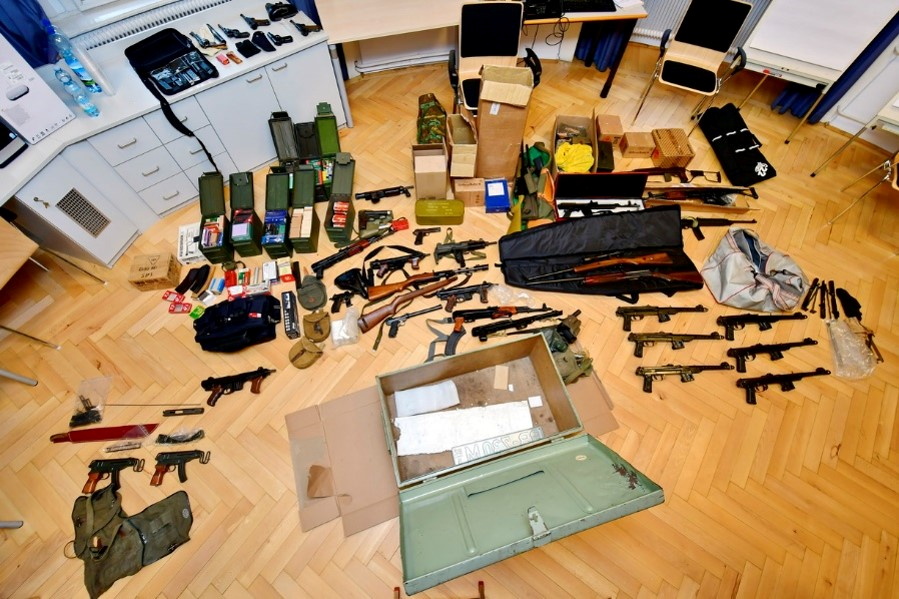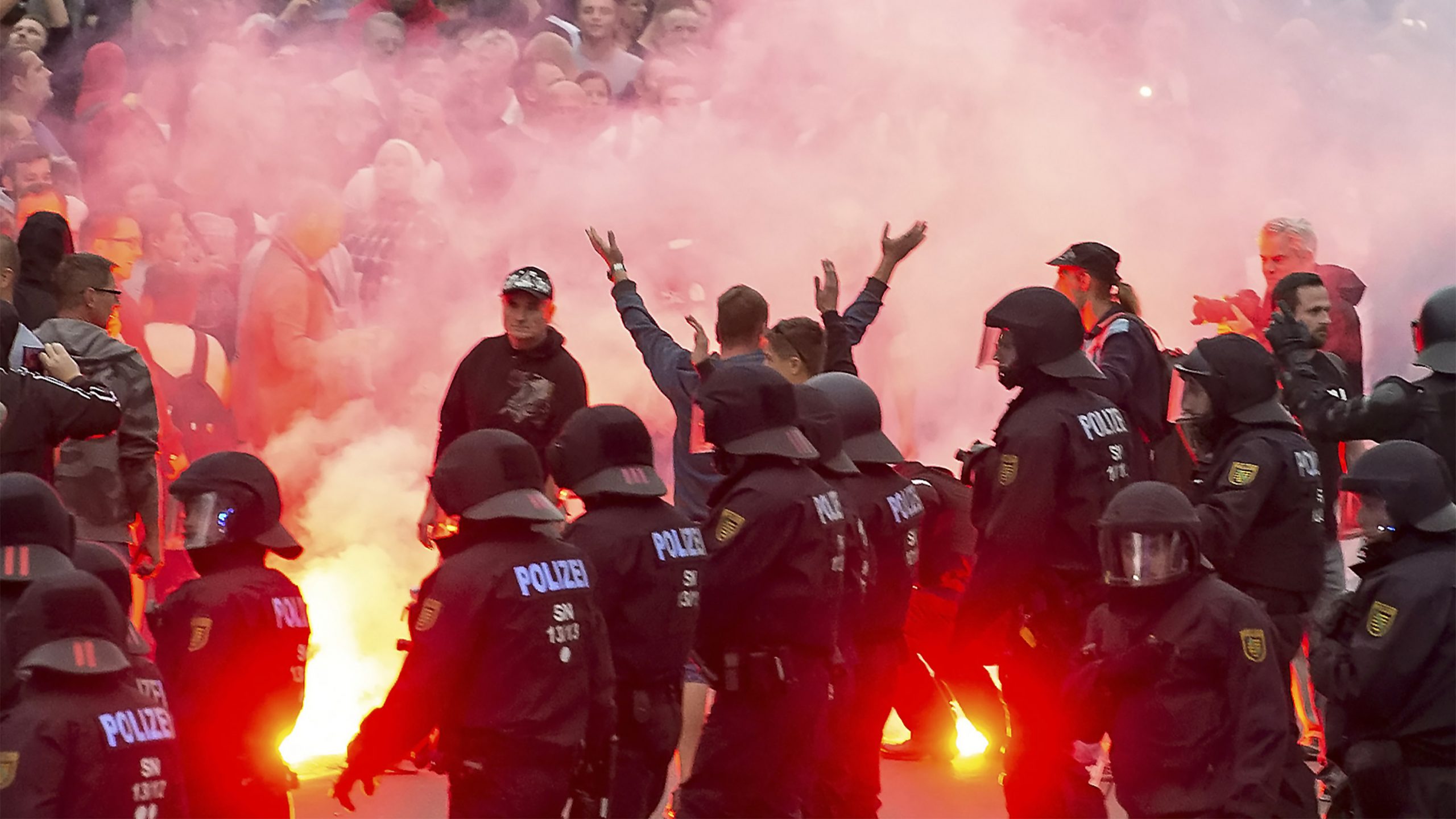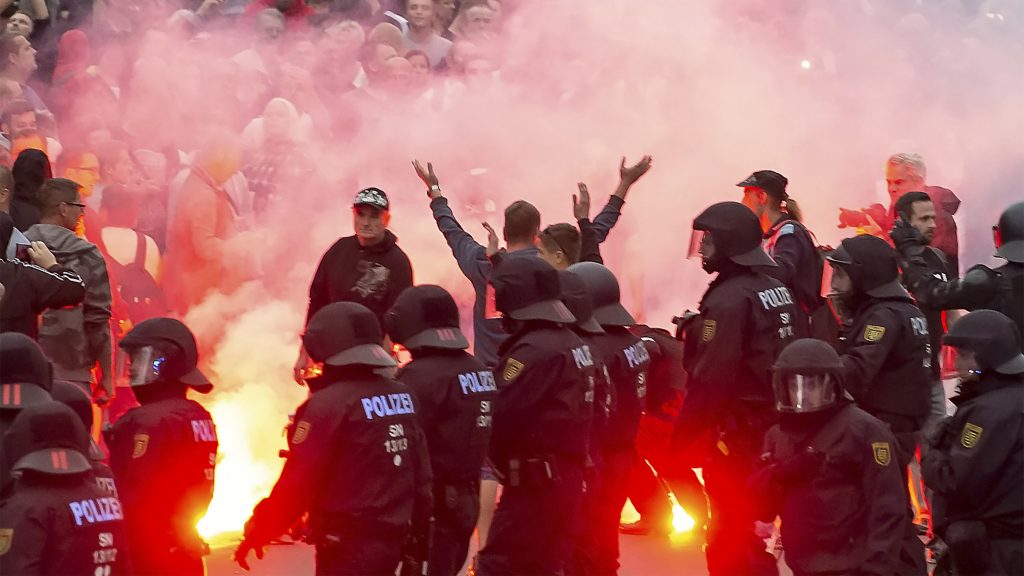Shea Stewart reports on the Austrian Police force’s seizure of around 100 firearms that were intended to arm German neo-Nazi group

Following a string of raids throughout the country, Austrian police have seized a huge quantity of weapons bound for German neo-Nazis.
Austrian Interior Minister Karl Nehammer delivered a press conference on Saturday detailing the government’s findings: The cache of trafficked weapons, which included assault rifles and hand grenades, were bought with drug money with the intention of arming an underground fascist group in Germany’s southeasternmost state of Bavaria.
Raids have so far led to five arrests, the seizure of around 100 firearms including AK-47s, Uzis, and Skorpions as well as over 100,000 rounds of ammunition. This is the biggest haul that Austrian police have dealt with in decades.
The extent of this underground network unfortunately comes as no surprise: The German far-right are on the rise, both on the streets and in the Bundestag. In 2017’s federal elections the anti-immigration AfD, previously unrepresented in Germany’s parliament, won 94 seats with 12.6% of the vote.
But growing far-right sentiment is not only being expressed through the ballot box, and this incident is only the latest evidence that the fascists are gearing up for war. Throughout the 2000s a group known as the National Socialist Underground perpetrated a series of attacks on migrant workplaces, killing 10 people. In February of this year a far-right extremist opened fire on two shisha bars in Hanau, killing 9. The gunman’s manifesto outlined his motivations – a hatred for migrants and for the “impure” politicians that let them come to Germany.
British formed neo-Nazi group Combat 18, banned in Germany earlier this year after the assassination of pro-immigration politician Walter Lübcke, is among a litany of groups proscribed by the German state for inciting “neo-Nazi terror”. The banning of Sturmbrigade 44 on December 1st totals close to 50 far-right organisations proscribed in Germany since the reunification of the country in 1990. By comparison, in 2016 National Action became the first far-right group to be banned in Britain since the Second World War.

The sheer number of proscribed such groups in Germany raises questions about the policy’s effectiveness, namely – does banning such groups moderate their extremist views, or cause them to go even further? The continued operation of neo-Nazis in Germany despite proscription shows that they are far from deterred by state repression – only pushed underground.
German Interior Minister Horst Seehofer stated: “Anyone who fights against the fundamental values of our liberal society will feel the determined reaction of the constitutional state.” This is by no means limited to the far-right. Political repression is used frequently against communists in Germany, and members of Roter Aufbau and Jugend Wiederstand were subjected this year to raids, confiscation of property and police harassment.
As revolutionaries, we proclaim our opposition to the values of this bourgeois-liberal society with pride. We stand unapologetically against the capitalist order and its political structures. Accordingly, we are just as liable for state repression as anyone, and we should organise with this in mind.
Do we have the organisational strength to withstand proscription? Would we have the apparatus to continue our work? Poland’s KPP, sister party to our own CPB, is currently being threatened with a state banning order. If the motion to ban them passes, Poland’s communist movement will face a new set of challenges: to regroup and renew their struggle underground.
The communists must prepare for attacks from both sides. As one capitalist crisis dovetails into another and another, rending great tears in the social fabric and bringing the class struggle sharply to the forefront, the liberal establishment will fight socialism with increasingly vicious reaction – using the state apparatus and all its power to uphold the dictatorship of capital.
The underground fascist menace, growing everyday in size and confidence, will rear its ugly anti-communist head and renew their own offensive against us soon enough.
We must not be out-organised or outgunned on either front, and nor should we shy away from these inevitably bitter and bloody struggles.
We must be ready and waiting to uphold the resolute, uncompromising attitude of Karl Marx in 1849:
“We have no compassion and we ask no compassion from you. When our turn comes, we shall not make excuses for the terror.”
Shea Stewart




